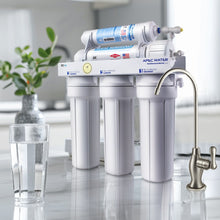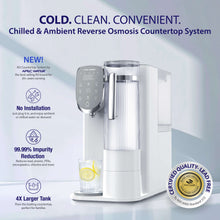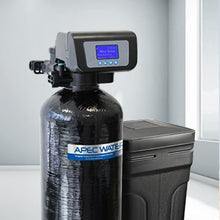How water can help stop disease causing Acidosis?
Every day we wage our own private war against molds, yeasts, bacteria, viruses, and fungi. By using antibiotics as the first line of defense we have encouraged the development of more powerful de...
Yes, because drinking water is not usually the primary source of lead exposure around the home. Even when the drinking water contains some lead, it is rarely the sole source of lead poisoning in ...
Soft drinks and alcohol...stealing precious water from your body.
Not enough can be said about the role of water in our own body and in our environment. Water is simply the substance of life. Life can not exist without Water. We must constantly be adding fresh ...
Exactly what is radon and how many deaths are attributed to it via your drinking water? Radon is a colorless and odorless, naturally occurring radioactive gas that is formed by the radioactive de...
Is travelers' diarrhea caused by poor quality drinking water?
In short, yes. Just like drinking from a water supply such as a stream can sometimes prove unsafe, drinking untreated water from an underdeveloped country can be hazardous too. But there are some...
Does perchlorate cause cancer?
The salt within perchlorate is a toxin, but there is disagreement about how much is bad for you when ingested. The U.S. Environmental Protection Agency is creating drinking water standards for po...
The nano boom yielded countless commercial benefits—ultra-precise drug delivery systems, improved superconductors. Now, experts are examining the potential for toxic nanoparticles (objects typica...
Could my municipal water supply have the bacteria that causes ulcers?
This is not very likely. Even though very little is currently known about the epidemiology of Helicobacter pylori, the bacterium associated with stomach ulcers—it is believed that all standard di...
Are there any regulations for mercury contamination in bottled water?
In short, yes. In 1979, the U.S. Food and Drug Administration ruled that bottled water could contain no more than 2 parts per billion (2 micrograms per liter) of mercury. This is identical to the...
In short, the answer is no. Water is already naturally a uniquely formed compound without much need for improvement. Such promotional gimmicks about special-structured water clusters, primarily o...
How severe is Legionnaires' disease (legionellosis) within the general population?
Fortunately the disease is very selective in attack and infects only 2 to 5 % of those appropriately exposed to the bacteria. However, Legionella bacteria are believed to be among the top three c...
Can I get hepatitis A from drinking non-disinfected water from a lake or stream?
In short, yes, if that water has been infected by the feces of someone who has the disease. The reason why is because of the small size of the virus (less than 0.1-micron diameter), most cartridg...
For many of the smaller, newer, and more modern water treatment and distribution systems, Lead exposure is not as likely to be a pertinent issue. However, for many older systems where pipe scales...
Are There Real Health Benefits from Drinking Ionized Water?
What is "ionized water"? Actually, the term itself is essentially meaningless. True, it is possible for water to contain dissolved ions (electrically-charged atoms or molecules), but that's somet...
What are cyanobacteria and how could it affect you in you participate in renal dialysis?Cyanobacteria is the scientific name for blue-green algae, or "pond scum." The first recognized species wer...



